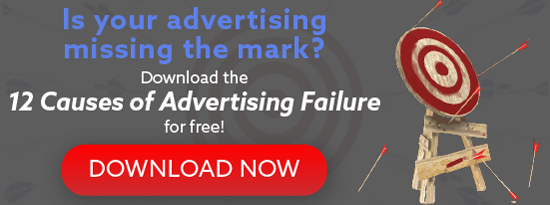 Event marketing can be an effective way for your business to gain additional exposure, and engage with an audience, face-to-face. But it can be quite a costly endeavor as well. The costs add up quick – renting a booth or a venue, hiring staff, printing promotional materials, buying refreshments, and the coveted “freebies” to give away (pens, t-shirts, etc.) – these things can quickly eat up a large portion of your marketing budget. But before investing in event marketing ask yourself, “If I want to engage with a large audience is this the best use of my marketing dollars?”
Event marketing can be an effective way for your business to gain additional exposure, and engage with an audience, face-to-face. But it can be quite a costly endeavor as well. The costs add up quick – renting a booth or a venue, hiring staff, printing promotional materials, buying refreshments, and the coveted “freebies” to give away (pens, t-shirts, etc.) – these things can quickly eat up a large portion of your marketing budget. But before investing in event marketing ask yourself, “If I want to engage with a large audience is this the best use of my marketing dollars?”
 It’s important to look at your event-driven marketing efforts as you would any other marketing campaign: You must always treat your marketing dollars as an investment, not a cost. If an event-driven campaign isn’t going to help you achieve your brand’s goals, and produce a return on your investment, then it’s not something worth doing, plain and simple.
It’s important to look at your event-driven marketing efforts as you would any other marketing campaign: You must always treat your marketing dollars as an investment, not a cost. If an event-driven campaign isn’t going to help you achieve your brand’s goals, and produce a return on your investment, then it’s not something worth doing, plain and simple.
An event should be judged by its ability to help you clearly define your market position and substantiate your claims. Think about it this way: If one percent of the people who hear your radio ad for a special event actually choose to come, you would be in need of a traffic cop and a bus to shuttle people to and from remote parking lots. Yet your real investment will be in the 99% who did not come to the event! What did your ad say to them?
If you invited say, 100,000 people to an event, and 1,000 showed up it would be a great turnout, for sure. But you’d still only be reaching a fraction of your audience. Wouldn’t the money you spend promoting an event be better utilized in engaging with the 99% of your audience who can’t make it?
The Best Use of Event Marketing
Event marketing can be great for helping your brand engage with potential customers. It also provides a great opportunity to network, build your database, and educate your audience about your product or services. Marketing your business to potential customers at events also puts a face to your business’ name. It allows you to engage with prospects on a more personal level, ultimately creating a more lasting connection than you would have otherwise.
Remember though, event marketing does not create brand awareness for your business, especially if it’s a one-time event. After the event is over, no one else will remember who you are or what you’re about. Think about it in terms of going to a party – the only people who will remember you are the ones you made a lasting, personal connection with.
The decision to incorporate event marketing into your overall marketing strategy should not be made lightly. Events can be rewarding, but if you don’t outline specific and realistic goals for your efforts, you could be wasting resources. Reaching out to a smaller audience via an event can be useful but if it’s the reach you’re looking for, you may want to consider another advertising medium.
Make sure to check back next Monday when we highlight #11 in our 12-part series on advertising failures: great production, poor copy.
The 12 Causes of Advertising Failure courtesy of Roy H. Williams , author of The Wizard of Ads & Secret Formulas of the Wizard of Ads.
